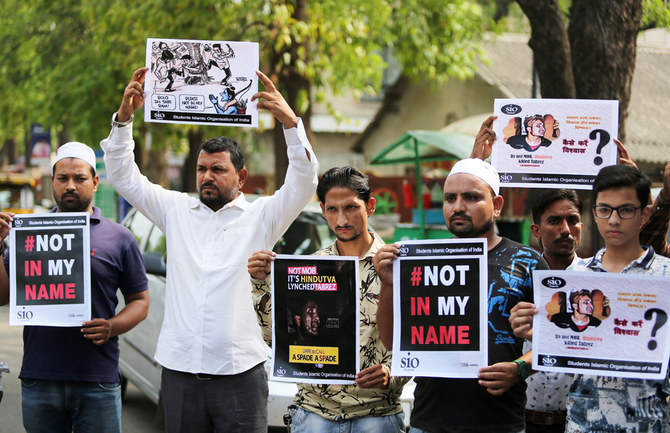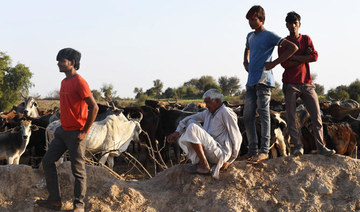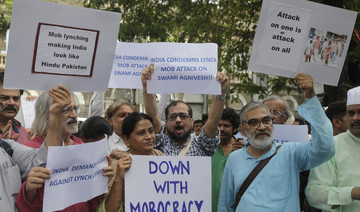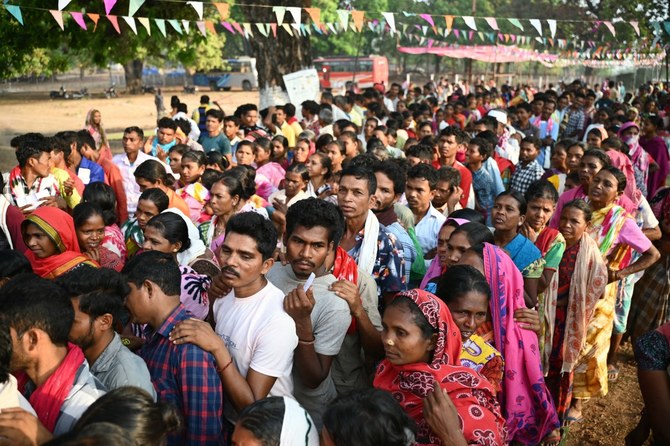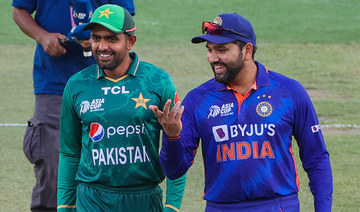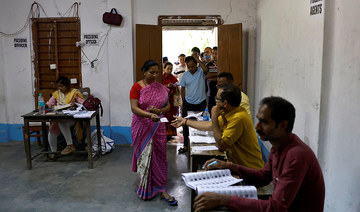NEW DELHI: Leading Indians have appealed to Prime Minister Narendra Modi to prevent the mob lynching of Muslims and other minorities, claiming that rising violence “ is taking India back to the Middle Ages.”
A letter signed by 49 people — including popular names from the Indian film industry like Adoor Gopalakrishnan, Aparna Sen, Shyam Benegal and Anurag Kashyap, celebrated vocalist Shubha Mudgal, historian Ramchandra Guha and sociologist Ashis Nandy — comes a week after the launch of a telephone helpline by an activist group to prevent incidents of lynching in several parts of the country.
“The lynching of Muslims, Dalits and other minorities must be stopped immediately,” read the open letter to the prime minister.
“We, as peace-loving and proud Indians, are deeply concerned by the tragic events that have been happening in recent times in our beloved country,” the letter added.
The letter said that religious identity-based hate crimes have increased in the last nine years, with 62 percent of the victims belonging to the Muslim community.
“About 90 percent of these attacks were reported after May 2014, when your government assumed power,” the signatories told the prime minister.
The citizens also lamented the weaponizing of the Hindu religious greeting “‘Jai Shri Ram (Hail Ram)’ as a provocative war cry leading to unrest and lynchings.”
They warned the government against taking India back to the “Middle Ages where much violence should be perpetrated in the name of religion.
“What action has actually been taken against the perpetrators? We strongly feel that such offences should be declared non-bailable, and that exemplary punishment should be meted out swiftly and surely,” demanded the letter.
Aparna Sen, a prominent figure in the Bengali film industry and one of the signatories to the letter, said that “it was depressing to read about lynching across the country.”
She told the media in Kolkata on Wednesday that “it is sad that people are beaten to death either because they are accused of eating beef or trading cows.”
Reacting to the letter, the Minority Affairs Minister Mukhtar Abbas Naqvi said that “no one should communalize criminal incidents.”
“Dalits and minorities are safe in this country. Those who are yet to recover from the defeat of 2019 general elections are trying to do it,” said Naqvi, who is the sole Muslim face of the Modi regime.
"We have seen the same thing after 2014 elections in the name of 'award wapsi' or ‘return the award campaign,’ this is just part two of that,” said the minister.
G Kishan Reddy, junior minister for home affairs, refused to take responsibility for lynchings.
He told Parliament on Wednesday that “data shows that there is no common pattern in mob lynching incidents. Such incidents have happened in different states ruled by different political parties.”
The letter to the prime minister comes a week after the launch of a dedicated phoneline by a group called United Against Hate, a campaign by activists and lawyers to arrest the growing trend of lynching in India.
“Lynching is a serious issue. Every day we are getting reports of 10 to 12 cases of mob lynching,” said Nadeem Khan, one of the core committee members of the group.
“The government has failed in maintaining rule of law. Since no justice has been delivered in any of the mob lynching cases, you cannot deny the political angle to the incidents,” Khan added.
“Some of the ministers and leaders of the ruling Bhartiya Janata Party (BJP) have been found providing legal support to the accused in different states,” Khan told Arab News.
He added that “minority community does not have any hope from the government. They have hope from the judiciary.”
Prof. Apoorvanand of Delhi University said: “To say that the situation is grim is to use a mild word. We don’t understand the anxiety among the minority communities today. It is not only Muslims but Christians also are under attack.”
He added that “the minorities seem to be giving up on the promise of Indian nationhood: The promise was that it would be a secular state.”
“The killing of one Muslim is not only a killing of one individual but a message to the whole community. People must understand that this is detrimental to the whole project of Indian nationhood.”
“Modi is expert on dog-whistle politics and during the election campaign he was found using the Hindu religious slogans to provoke people. The problem is that Modi also happens to be the prime minister and people have certain expectations. And those expectations must be registered. It should also be documented that Modi, whose intervention would have mattered, failed to be moved by the appeal of the concerned citizens.”
Social activist Harsh Mander has been leading a campaign called “carvan e mohbbat (a journey of love)” to provide a healing touch to victims of lynching. He has visited 29 places so far to reach out to the families.
“The principle target of mob violence is the Muslim community”, said Mander.
“It is terrifying to see the whole social atmosphere of the country. It is normalizing lynching. The mainstream media remains largely silent on the cases of mob violence,” Mander told Arab News.
He said that “most of the violence is the by-product of the hate speech indulged in by the BJP cadres and some ministers. The ruling party has created an atmosphere which encourages violence. Modi has to take direct responsibility for this.”
“It is a terrifying time to be a minority in the country today and propagate secular values. The only hope is the campaign by concerned citizens to create awareness about the danger of such hate crimes,” the activist added.
According to a Reuters report, 63 cow vigilante attacks occurred in India between 2010 and mid 2017, most since the Modi government came to power in 2014. In these attacks between 2010 and June 2017, “28 Indians – 24 of them Muslims – were killed and 124 injured.”



